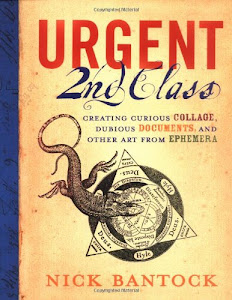
The Science of Getting Rich, Being Great, and Being Well
Catégorie: Livres pour enfants, Etudes supérieures
Auteur: Dav Pilkey, Wilkie Collins
Éditeur: Anthony William, Richard Dawkins
Publié: 2018-09-25
Écrivain: Heather Amery
Langue: Turc, Français, Vietnamien, Croate
Format: eBook Kindle, Livre audio
Auteur: Dav Pilkey, Wilkie Collins
Éditeur: Anthony William, Richard Dawkins
Publié: 2018-09-25
Écrivain: Heather Amery
Langue: Turc, Français, Vietnamien, Croate
Format: eBook Kindle, Livre audio
It's official -- spending time outside is good for you ... - Living close to nature and spending time outside has significant and wide-ranging health benefits -- according to new research. A new report reveals that exposure to greenspace reduces the risk of ...
The Science of Getting Rich: How to make money and get the ... - The Complete Wallace D. Wattles: (9 BOOKS) The Science of Getting Rich; The Science of Being Great;The Science of Being Well; How to Get What You ... Harrison (novel) (Timeless Wisdom Collection) Wallace D. Wattles. 4.8 out of 5 stars 271. Paperback. 16 offers from $9.21. The Science of Being Great. Wallace D Wattles. 4.5 out of 5 stars 111. Paperback. 7 offers from $5.95. The Science of ...
Ageless: The New Science of Getting Older Without Getting ... - Andrew Steele’s book “Ageless” is a lengthy review of the many advancements being made in science and medicine concerning aging, or more accurately, how science and medicine are trying to stop the aging process, or at least slow it down. The science and medicine, study after study, advancement and hopeful outcomes, drone on incessantly. In almost all of them, Steele gives the context ...
Top 10 Surprising Disadvantages Of Being Rich - Listverse - Being rich has been linked to higher levels of various mental disorders—like anxiety—in many studies in the past, along with a few other problems you wouldn’t expect. One study, for example, found that young people living in affluent suburbs are much more likely to display indicators of maladjustment—like higher levels of anxiety and depression, narcissism and substance abuse—than ...
Subjective Well-Being: Why Is It Important and How Can We ... - What is Subjective Well-Being? According to Diener (2000, p.34), SWB is: “people’s cognitive and affective evaluations of their lives.” Veenhoven (1997, p.34) describes it similarly – as cognitive and affective appraisals cover “how good [one’s life] feels, how well it meets expectations, how desirable it is deemed to be, etc.”
11 Scientific Reasons Why Being in Nature is Relaxing ... - Breathing fresh air can therefore help regulate your levels of serotonin and promote happiness and well-being. The negative ion-rich oxygen found in nature also has a relaxing effect on the body ...
Authentic leadership development: Getting to the root of ... - Other areas of convergence between these two respective models include their focus on positive modeling as a primary means whereby authentic leaders influence followers, as well as a focus on well-being as an outcome of authenticity, which stems directly from Luthans and Avolio (2003). Key differences involve the inclusion of additional means of influence (, positive emotions contagion ...
Getting rich quick with machine ... - Towards Data Science - This model appears to not suffer the previous problem of being continuously off by a fixed amount, but does seem to suffer from not catching sudden jumps as well. Like at around x-coordinate 120, a large jump and dip in the real price occurs but the model fails to capture this effectively. But it is getting better! And it seems that technical indicators could be the way forward.
The Science Behind Composting | Live Science - The end-product of this concentrated decomposition process is nutrient-rich soil that can help crops, garden plants and trees to grow. The composting process. Microorganisms are vital to the ...
Active Listening: Why Empathetic Conversation Matters - Active Listening Increases Well-being. The need for connectivity and belonging is fundamental in humans, not only when we are born but also in adult life (Baumeister & Leary, 1995). We all want to be liked, even if we do not like to admit it. It makes sense: human evolved as social beings who needed to connect with others in order to strategize and survive. Research has found that we mimic ...
[download], [pdf], [english], [epub], [audible], [kindle], [goodreads], [free], [audiobook], [online], [read]


















0 komentar:
Posting Komentar
Catatan: Hanya anggota dari blog ini yang dapat mengirim komentar.